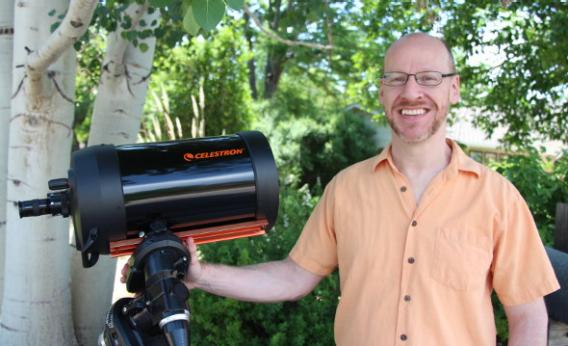Create a free profile to get unlimited access to exclusive videos, sweepstakes, and more!
Crash Course Astronomy Episode 6: Telescopes

By number, I’d say I go outside and use just my eyeballs to look at the stars more than any other method. Every time I step outside, the first thing I do is look up. Even during the day: I wouldn’t want to miss the Moon, some Sun-induced optical phenomena, iridescent clouds, or maybe even the eye-wateringly hard-to-spot Venus in the clear blue sky.
And at night, there are familiar constellations, planets, the odd meteor or two, and satellites streaming overhead. These are all fun to see with your unaided eyes.
But there are times when a little magnification is needed. In those cases you’re far more likely to find me with binoculars up to my eyes, scanning the heavens for various objects. And then, when I’m feeling ambitious, out comes the telescope, in goes the eyepiece, and down goes my evening as I hop from one distant world to another.
But … how does a telescope work?
I’m glad you asked. Here’s my answer, cleverly embedded in this week’s Crash Course Astronomy episode!
I hope that helps! If you get anything out of that episode, let it be that telescopes help resolve objects, make fainter objects appear brighter, and let us see invisible forms of light. And before you ask, I have advice on how to buy a telescope, too.
That reminds me: An FAQ I get is, “What observing equipment do you use?” I have it on my list of Things I Need to Actually Write About Eventually When I Think About Them When I Actually Do Have Time to Write Them. And the list is longer than the title.
By the way, I'm extremely proud to say that Crash Course Astronomy passed a million total views this week! That's amazing to me. I'm really glad so many of you like the series. And I'm happy to say there are lots, lots more episodes to come. Here's the playlist of all the episodes so far. You can subscribe to Crash Course on YouTube, and don't forget subscribing to Subbable helps support the show as well.
Thank you to everyone who helps make this show happen. You are the Bernoulli effect above my wings.


























